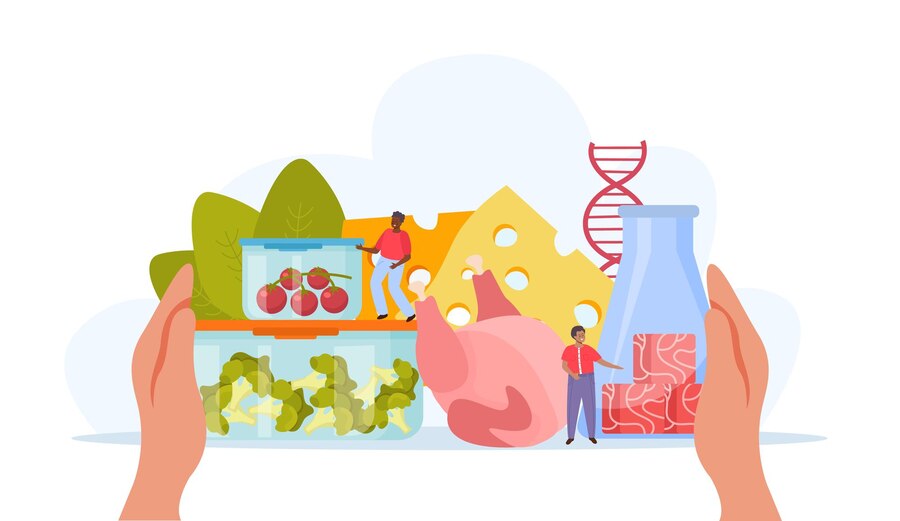Nutrigenomics is an emerging field that investigates the relationship between nutrition and genes. By understanding how genetic variations affect nutrient metabolism, nutrigenomics aims to develop personalized dietary recommendations that can optimize health and prevent disease.
Understanding Nutrigenomics
-
Genetic Variations and Nutrition: Genetic variations, such as single nucleotide polymorphisms (SNPs), can influence how individuals metabolize nutrients. For example, some people may have a genetic variation that affects their ability to process vitamin D or folate efficiently.
-
Gene-Diet Interactions: Nutrigenomics studies how different diets can affect gene expression. Certain nutrients can activate or suppress specific genes, influencing biological processes such as inflammation, metabolism, and detoxification.
Benefits of Personalized Nutrition
-
Optimized Nutrient Intake: By analyzing an individual's genetic profile, nutrigenomics can provide personalized dietary recommendations that ensure optimal nutrient intake. This can help prevent deficiencies and support overall health.
-
Disease Prevention: Personalized nutrition can reduce the risk of chronic diseases by tailoring diets to an individual's genetic predispositions. For example, someone with a genetic risk for cardiovascular disease might benefit from a diet low in saturated fats and high in omega-3 fatty acids.
-
Weight Management: Genetic variations can affect how individuals respond to different diets. Nutrigenomics can help identify the most effective dietary strategies for weight management based on an individual's genetic makeup.
Challenges and Considerations
-
Complexity of Gene-Diet Interactions: The relationship between genes and nutrition is complex, involving multiple genes and environmental factors. More research is needed to fully understand these interactions and develop accurate recommendations.
-
Accessibility and Cost: Genetic testing and personalized nutrition plans can be expensive and may not be accessible to everyone. Efforts are needed to make these services more affordable and widely available.
Future Directions
-
Integration with Digital Health: Digital health platforms can integrate genetic data with dietary recommendations, making personalized nutrition more accessible and user-friendly. Mobile apps and wearable devices can track dietary intake and provide real-time feedback.
-
Continued Research: Ongoing research in nutrigenomics will continue to uncover new insights into gene-diet interactions. This will lead to more refined and accurate dietary recommendations tailored to individual genetic profiles.
Nutrigenomics holds significant promise for the future of personalized nutrition. By tailoring dietary recommendations to individual genetic profiles, nutrigenomics can optimize health, prevent disease, and improve overall well-being. As research advances and accessibility improves, personalized nutrition will become an integral part of healthcare.




